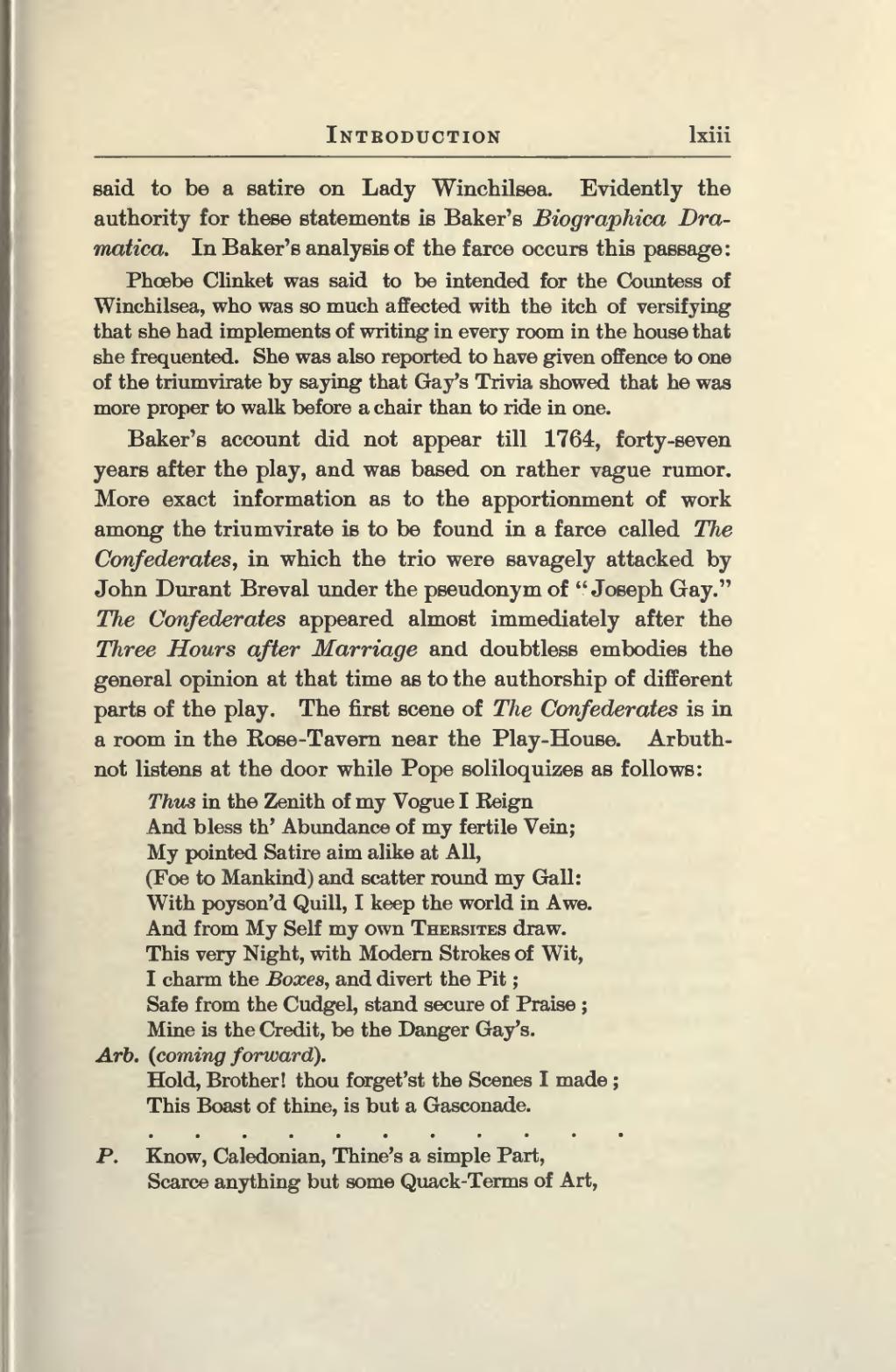INTRODUCTION Ixiii ���said to be a satire on Lady Winchilsea. Evidently the authority for these statements is Baker's Biograpliica Dra- matica. In Baker's analysis of the farce occurs this passage : �Phoebe Clinket was said to be intended for the Countess of Winchilsea, who was so much affected with the itch of versifying that she had implements of writing in every room in the house that she frequented. She was also reported to have given offence to one of the triumvirate by saying that Gay's Trivia showed that he was more proper to walk before a chair than to ride in one. �Baker's account did not appear till 1764, forty-seven years after the play, and was based on rather vague rumor. More exact information as to the apportionment of work among the triumvirate is to be found in a farce called The Confederates, in which the trio were savagely attacked by John Durant Breval under the pseudonym of "Joseph Gay." The Confederates appeared almost immediately after the Three Hours after Marriage and doubtless embodies the general opinion at that time as to the authorship of different parts of the play. The first scene of The Confederates is in a room in the Rose -Tavern near the Play-House. Arbuth- not listens at the door while Pope soliloquizes as follows: �Thus in the Zenith of my Vogue I Reign And bless th' Abundance of my fertile Vein; My pointed Satire aim alike at All, (Foe to Mankind) and scatter round my Gall: With poyson'd Quill, I keep the world in Awe. And from My Self my own THEESITES draw. This very Night, with Modern Strokes of Wit, I charm the Boxes, and divert the Pit ; Safe from the Cudgel, stand secure of Praise ; Mine is the Credit, be the Danger Gay's. Arb. (coming forward). �Hold, Brother! thou forget'st the Scenes I made ; This Boast of thine, is but a Gasconade. �P. Know, Caledonian, Thine's a simple Part, �Scarce anything but some Quack-Terms of Art, ��� �
